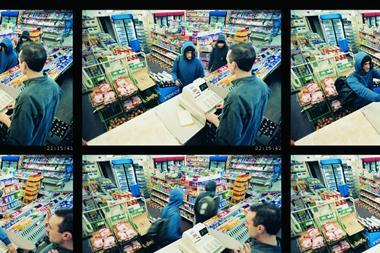Aidan Fortune looks at how stocking products that the multiples ignore can bring benefits to both retailers and suppliers
Everyone knows that personal service and a friendly atmosphere set convenience stores apart from the major multiples. However, another way for independents to differientiate themselves is by offering products that aren't available at the large supermarket chains.
Andrew Thornton of Budgens in Crouch End, London, uses numerous suppliers that are exclusive to the independent channel, and many of them are local. He has built up a reputation in his area for stocking the brands that the supermarkets don't.
"Some of my suppliers say they don't want to be dependent on a supermarket and would rather supply to lots of smaller stores and not put all their eggs in one basket."
He states that his relationship with independent suppliers is mutually beneficial as shoppers like the idea of buying products from local companies. "So much of our food today is mass-produced that customers are no longer sure where it's actually come from," says Andrew. "Earlier this year I read about a study where some children were asked where eggs came from and the most common answer was Tesco! People want to reconnect with their food and buying locally helps them do this."
He says it's essential that retailers let their customers know that they stock products that can't be bought in the multiples. "Flag it up in store and show that you have something that the supermarkets don't," he says. "Be proud of these products and make sure customers know about them, especially if they are local businesses supplying the products."
Andrew says that having exclusive suppliers like these can help your customers understand traceability and the hard work that goes into the production of these goods. "Have tastings in your store and get the supplier in to meet customers," he says. "With big suppliers you often just get sales reps, so it's a chance for the public to meet someone who has had a hand in making the food they eat and who cares about the product."
Customer concerns over food miles is one of the main reasons Conrad Davies, who run Spar stores in Pwllheli, Blaenau Ffestiniog and Dolgellau in Wales, uses more than 50 independent suppliers, most of which operate in his area and only offer products to smaller stores. He says that customers are aware of how far food has to travel and often look to local products rather than big name brands.
"Consumers are savvy about the distance that products have travelled so if you can offer them a local product that only you stock, you'll satisfy them as well as creating a reputation in your area as a store that sells unique lines," he says.
He advises retailers to work with independent suppliers to help keep costs down. "With the recession still biting, consumers are watching what they spend and sometimes independent products can be more expensive than the regular, mass-produced stock, so they can be the first to suffer," he says. "With one of my suppliers I get them to deliver to just one of my stores and I arrange transport to my other stores myself. It doesn't cost me any extra, but helps keep their overheads down and therefore their prices, as well as reducing food miles."
It is exactly this willingness to adapt that has made the convenience channel so appealing to East Sussex supplier Infinity Foods, which offers a wide range of products, from juices to cereal bars. Managing director Charlie Booth says: "We usually find c-stores easier to deal with than large chains. They're more flexible and not as demanding as multiples can be. Supplying independents also provides us with a more diverse customer base."
Booth says that although he would not be averse to dealing with multiples in the future, past negotiations have not worked out. "The few conversations we have had with multiples have never gone very far as we are unwilling to amend our terms. We're happy to remain exclusive to independent stores," he says.
Jam and chutney producer Darlington & Daughters of Cheshire is also supportive of independent stores. "For us there's an element of loyalty to the independent sector. Wendy Darlington says: "My mum started off making 100 jars a day in her farmhouse kitchen and supplying them to local stores, and we grew from there. We've had requests to supply multiples, but we don't feel it's appropriate to do so as we've had so much support from independents."
While many independent suppliers tend to be smaller firms that are local to the stores they deal with, some bigger players have also made their mark on the sector. Booker's Euro Shopper range, and in particular its energy drink, has been extremely successful in the independent channel. Booker retail sales director Steve Fox explains why the product is performing so well: "Customers were looking for great quality products that they could sell to compete with the discount sector. Euro Shopper seemed the perfect vehicle for Booker to give independents an exclusive product at a great price."
A can of Euro Shopper energy drink is a mere 35p, which is significantly less than major branded offerings. The product recorded the fastest rate of sale of any impulse drink in 2009, proving that a brand exclusive to the convenience channel can be a win-win for both retailers and suppliers.
Everyone knows that personal service and a friendly atmosphere set convenience stores apart from the major multiples. However, another way for independents to differientiate themselves is by offering products that aren't available at the large supermarket chains.
Andrew Thornton of Budgens in Crouch End, London, uses numerous suppliers that are exclusive to the independent channel, and many of them are local. He has built up a reputation in his area for stocking the brands that the supermarkets don't.
Big brands’ efforts
While stocking brands that are available only in the convenience sector is a draw, there will always be demand for big brands, too. However, independents can still differentiate themselves from the multiples by looking out for product formats exclusive to convenience stores.
In August Coca-Cola launched a pricemarked four-pack exclusively through the convenience channel. The product went down well with consumers and the rate of sale of the four-pack was 25% higher than that of the standard six-pack that is stocked across all channels (AC Nielsen Independents 10 weeks to October 9, 2010).
CCE trade communications manager Selena Taylor says: "The MyCoke four-pack provides retailers with a point of difference, and consumers a convenient pack size that is easier to carry home."
Dairy Crest is also producing convenience store-specific lines. It recently launched Utterly Butterly and Clover 100% extra-free packs targetting indies, and packs of Cathedral City Mature with '50% extra free'just for c-stores.
He explains why his suppliers prefer to deal with small stores, rather than the multiples: "Some suppliers may be too small to deal with the multiples, but with others it's the case that they don't approve of the big supermarkets' policies and see them as overly-aggressive. While stocking brands that are available only in the convenience sector is a draw, there will always be demand for big brands, too. However, independents can still differentiate themselves from the multiples by looking out for product formats exclusive to convenience stores.
In August Coca-Cola launched a pricemarked four-pack exclusively through the convenience channel. The product went down well with consumers and the rate of sale of the four-pack was 25% higher than that of the standard six-pack that is stocked across all channels (AC Nielsen Independents 10 weeks to October 9, 2010).
CCE trade communications manager Selena Taylor says: "The MyCoke four-pack provides retailers with a point of difference, and consumers a convenient pack size that is easier to carry home."
Dairy Crest is also producing convenience store-specific lines. It recently launched Utterly Butterly and Clover 100% extra-free packs targetting indies, and packs of Cathedral City Mature with '50% extra free'just for c-stores.
"Some of my suppliers say they don't want to be dependent on a supermarket and would rather supply to lots of smaller stores and not put all their eggs in one basket."
He states that his relationship with independent suppliers is mutually beneficial as shoppers like the idea of buying products from local companies. "So much of our food today is mass-produced that customers are no longer sure where it's actually come from," says Andrew. "Earlier this year I read about a study where some children were asked where eggs came from and the most common answer was Tesco! People want to reconnect with their food and buying locally helps them do this."
He says it's essential that retailers let their customers know that they stock products that can't be bought in the multiples. "Flag it up in store and show that you have something that the supermarkets don't," he says. "Be proud of these products and make sure customers know about them, especially if they are local businesses supplying the products."
Andrew says that having exclusive suppliers like these can help your customers understand traceability and the hard work that goes into the production of these goods. "Have tastings in your store and get the supplier in to meet customers," he says. "With big suppliers you often just get sales reps, so it's a chance for the public to meet someone who has had a hand in making the food they eat and who cares about the product."
Customer concerns over food miles is one of the main reasons Conrad Davies, who run Spar stores in Pwllheli, Blaenau Ffestiniog and Dolgellau in Wales, uses more than 50 independent suppliers, most of which operate in his area and only offer products to smaller stores. He says that customers are aware of how far food has to travel and often look to local products rather than big name brands.
"Consumers are savvy about the distance that products have travelled so if you can offer them a local product that only you stock, you'll satisfy them as well as creating a reputation in your area as a store that sells unique lines," he says.
He advises retailers to work with independent suppliers to help keep costs down. "With the recession still biting, consumers are watching what they spend and sometimes independent products can be more expensive than the regular, mass-produced stock, so they can be the first to suffer," he says. "With one of my suppliers I get them to deliver to just one of my stores and I arrange transport to my other stores myself. It doesn't cost me any extra, but helps keep their overheads down and therefore their prices, as well as reducing food miles."
It is exactly this willingness to adapt that has made the convenience channel so appealing to East Sussex supplier Infinity Foods, which offers a wide range of products, from juices to cereal bars. Managing director Charlie Booth says: "We usually find c-stores easier to deal with than large chains. They're more flexible and not as demanding as multiples can be. Supplying independents also provides us with a more diverse customer base."
Booth says that although he would not be averse to dealing with multiples in the future, past negotiations have not worked out. "The few conversations we have had with multiples have never gone very far as we are unwilling to amend our terms. We're happy to remain exclusive to independent stores," he says.
Tips for sourcing independent suppliers
- Put the word out among the community. There may be people in your area who run a business that could supply to you
- Go to your local farmers market and ask the people selling at it if they supply to stores or would they like to
- Visit trade shows to meet new companies and suppliers
- Get in contact with regional food bodies for contacts in your area
Booth maintains that retailers deal with suppliers like Infinity because it helps set them apart. "Independent retailers appreciate being able to stock lines that are not available in the supermarkets."- Put the word out among the community. There may be people in your area who run a business that could supply to you
- Go to your local farmers market and ask the people selling at it if they supply to stores or would they like to
- Visit trade shows to meet new companies and suppliers
- Get in contact with regional food bodies for contacts in your area
Jam and chutney producer Darlington & Daughters of Cheshire is also supportive of independent stores. "For us there's an element of loyalty to the independent sector. Wendy Darlington says: "My mum started off making 100 jars a day in her farmhouse kitchen and supplying them to local stores, and we grew from there. We've had requests to supply multiples, but we don't feel it's appropriate to do so as we've had so much support from independents."
While many independent suppliers tend to be smaller firms that are local to the stores they deal with, some bigger players have also made their mark on the sector. Booker's Euro Shopper range, and in particular its energy drink, has been extremely successful in the independent channel. Booker retail sales director Steve Fox explains why the product is performing so well: "Customers were looking for great quality products that they could sell to compete with the discount sector. Euro Shopper seemed the perfect vehicle for Booker to give independents an exclusive product at a great price."
A can of Euro Shopper energy drink is a mere 35p, which is significantly less than major branded offerings. The product recorded the fastest rate of sale of any impulse drink in 2009, proving that a brand exclusive to the convenience channel can be a win-win for both retailers and suppliers.






















No comments yet